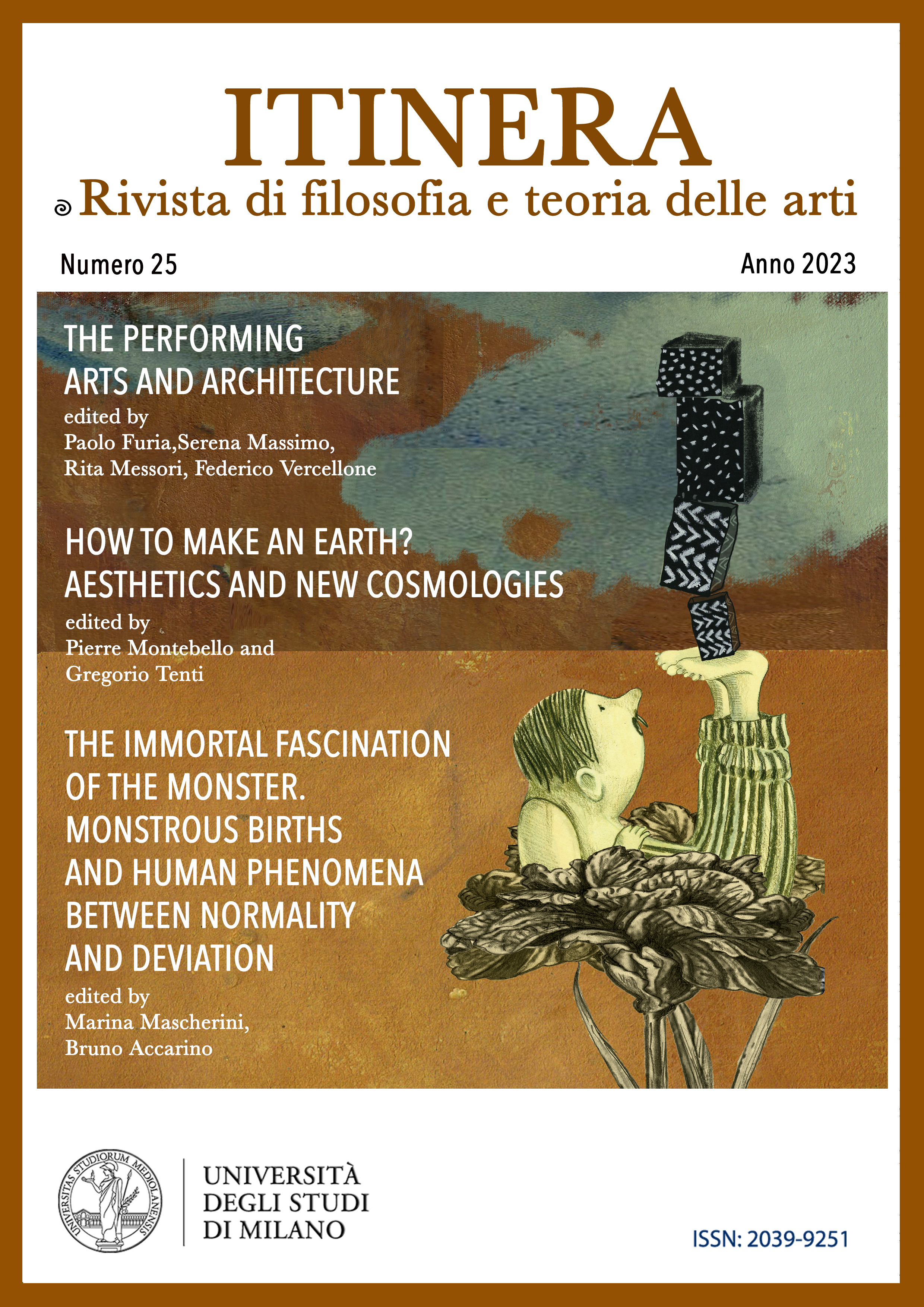La crisi dell’eroe Rappresentazione cinematografica del sottosuolo
DOI:
https://doi.org/10.54103/2039-9251/20842Parole chiave:
Underground, Girard, Mimetic desire, Trauma.Abstract
The following article analyzes the parallelism between Notes from Underground by Fëdor Dostoevsky and Martin Scorsese’s Taxi Driver. The link between these works was made explicit by the director in a documentary movie about his career. The article revolves, therefore, around the underground as a place of intimate alienation and painful incommunicability. As a key to the interpretation, I used the studies of René Girard. In his essay about Dostoevsky he shows the underground as the place of the perversion of desire. The triangular structure subject-mediator-object becomes the source of deep obsession and rivalry: the mediator is for the subject who imitates him worshipped model and hated rival at the same time. In conclusion of the article, I will investigate the resolution hypothesis of Dostoevsky and Girard. Those hypotheses will then be compared with Travis’ story to try to understand if the man who has been harmed by the crisis of desire can come out as a winner from the underground.
Downloads
Riferimenti bibliografici
BIBLIOGRAFIA
Coughlan, B., Martin Scorsese and redemptive violence: a theological reflection and critique, Mary Immaculate College, 2013.
Dostoevskij, F., Lettere sulla creatività, Feltrinelli, Milano 2020.
Dostoevskij, F., Memorie del sottosuolo, Einaudi, Torino 2014.
Embler, W., The metaphor of the underground, in “A review of general semantics”, 25/4, December 1968.
Fallaci, O., Niente e così sia, BUR Rizzoli, Milano 2010.
Fornari, G., Mediazione estatico-oggettuale. Per una nuova teoria antropologica e psicologica, in “Storie e geografie familiari”, 7-8/, 2012.
Girard, R., Dostoevskij: dal doppio all’unità, SE, Milano 2005.
Girard, R., Fornari G., Il caso Nietzsche, Marietti, Bologna 2019.
Girard, R., Il risentimento: lo scacco del desiderio nell’uomo contemporaneo, Raffaello Cortina, Milano 1999.
Girard, R., Menzogna romantica e verità romanzesca, Bompiani, Milano 2021.
Girard, R., Vedo Satana cadere come la folgore, Adelphi, Milano 2001.
Greene, G., Fine dell’avventura, Oscar Mondadori, Milano 1970.
Lane, M., Una generazione nel Vietnam: testimonianze di reduci e disertori americani sulle torture e sui crimini di guerra, Feltrinelli, Milano 1971.
Macnab, G., Taxi Driver. Storia di un capolavoro, Minimum Fax, Roma 2012.
Myers, C., Violence and Redemption in Scorsese’s Films: A Girardian Reading, in C. B. Barnett, C. J. Elliston (ed. by) Scorsese and religion, Brill, 2019.
Schrader, P., Il trascendente nel cinema, Donzelli, Roma 2010.
Schrader, P., Taxi Driver, Faber and Faber, Londra 1990.
Swensen, A. J., The anguish of God’s lonely men: Dostoevsky’s underground man and Scorsese’s Travis Bickle, in “Renascence”, 53, 2001.
SITOGRAFIA
https://scrapsfromtheloft.com/movies/taxi-driver-underground-man-review-pauline-kael/
Dowloads
Pubblicato
Versioni
- 2023-10-20 (2)
- 2023-08-08 (1)
Come citare
Fascicolo
Sezione
Licenza
Copyright (c) 2023 Michelangelo Socci

Questo lavoro è fornito con la licenza Creative Commons Attribuzione - Condividi allo stesso modo 4.0.
Gli autori che pubblicano su questa rivista accettano le seguenti condizioni:
1. Gli autori mantengono i diritti sulla loro opera e cedono alla rivista il diritto di prima pubblicazione dell'opera, contemporaneamente licenziata sotto una Licenza Creative Commons - Attribuzione - Condividi allo stesso modo 4.0 internazionale che permette ad altri di condividere l'opera indicando la paternità intellettuale e la prima pubblicazione su questa rivista.
2. Gli autori possono aderire ad altri accordi di licenza non esclusiva per la distribuzione della versione dell'opera pubblicata (es. depositarla in un archivio istituzionale o pubblicarla in una monografia), a patto di indicare che la prima pubblicazione è avvenuta su questa rivista.
3. Gli autori possono diffondere la loro opera online (es. in repository istituzionali o nel loro sito web) prima e durante il processo di submission, poiché può portare a scambi produttivi e aumentare le citazioni dell'opera pubblicata (Vedi The Effect of Open Access).





